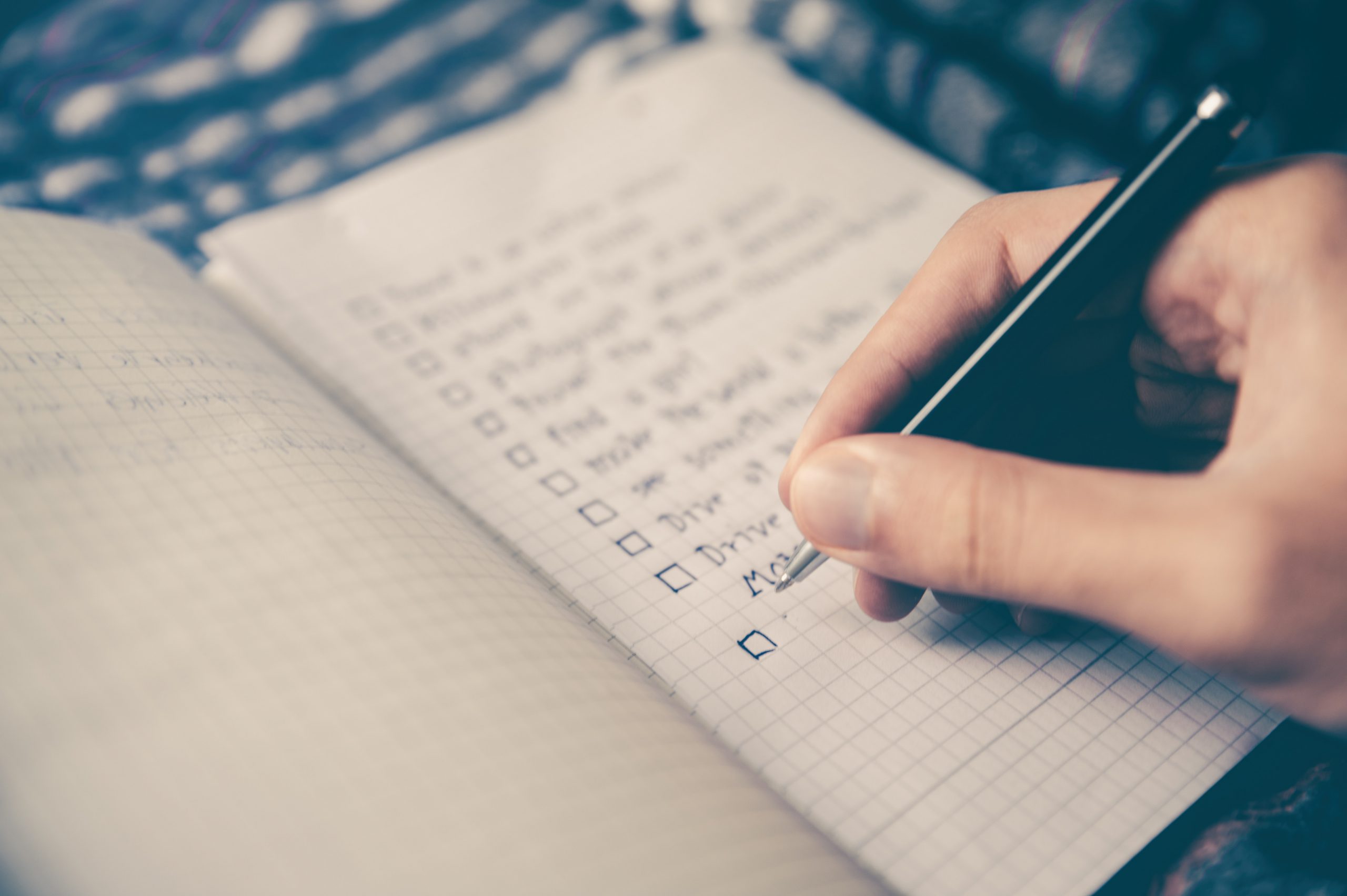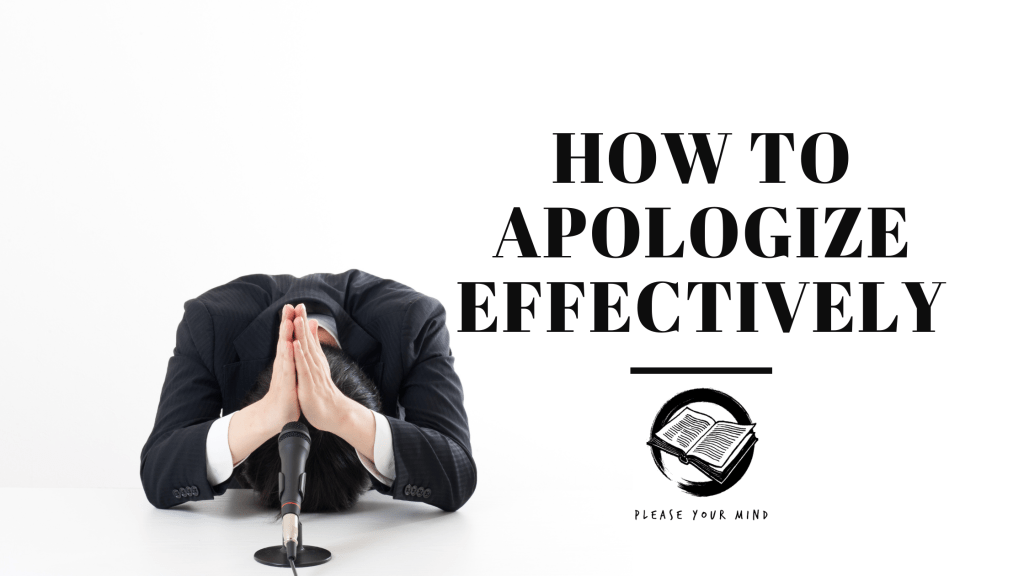People make mistakes. Some unintentionally, some because we thought it was the best for them and some because we did not know better. However, most people did not apologize at all because they talked to themselves that they did not make a mistake. Or they never learned how to apologize effectively. Let us learn how to apologize effectively.
The Power of Apology
I think many see an apology as a weakness. When someone apologizes it stated out clearly that this person is incorrect or did something wrong. And therefore in a state of loss of a fight, argumentation, or discussion. As a result, proper apologies are never learned correctly. The only time where I learned to apologize is when I hurt a kid. And I was 5 years old. Logically, I never meant it. Moreover, I never knew why I should apologize. I mean, when you are hurt, is it my problem?
And the rule of Apologize-is-for-the-weak intensifies in my years when I was 20. Maybe you can remember. I was cocky, arrogant, and a wanna-be man. So I lived with this rule for many years. Apologizing just for the sake of it. Throw it around like feeding pigeons with bread. Half-hearted and ignorant of the consequences afterward.
Times changes when I met her. For the first time in my life, I felt sorry whenever I hurt her. Until today, I can remember how she sat in the bathroom crying. Meanwhile, I did not know what to do, sitting beside her, and tried to comfort her. Once I did not want to hurt a precious human, my mindset changes. I learned how to apologize effectively. The power of apology should be recognized by all of us. Doing it correctly and living up to our promises on preventing mistakes, can change your life to a better one. In particular, when you want to be a master at socializing, learning how to apologize is a fundamental skill. And most importantly, it shows our strength by being responsible for what we have done.
5 Tips How to apologize effectively

Use ‘I’-sentences
A proper apology should impress that you take responsibility for your actions. Not to mention, people are impressed when you take responsibility for everything you do. So, the first step is to show you are responsible for your actions. Sentences like: ‘ I’m sorry that your feelings were hurt or ‘I am sorry that you are angry’, amplifies that it is not your responsibility that they are hurt. Translated: ‘ It does not have anything to do with me that you are hurt’.
Instead, every sentence of your apology must be filled with an impression of you taking responsibility.
For example:
- I am sorry that I hurt your feelings.
- I am sorry that I blew up this project/meeting
Express that you are the one who is responsible for your actions with ‘I’-sentences.
Do not justify your actions
It is natural to justify your actions. Of course, no one wants to be at fault. Or wants to admit they make a mistake. But, justify yourself because of some circumstances is dumb. More specifically, it is counterproductive. Because using justification is in effect a denial of the apology. The following sentences are suboptimal:
- Come on it wasn’t that bad!
- I can’t help it
- Sorry, I was just trying to help
- I was trying to get you to see the other side
Instead, use an apology combined with a not-defensive explanation and an admission of guilt.
Avoid ‘but’-sentences
An apology with the word ‘but’ will never be seen as a sincere apology. In fact, it is another excuse.
- I am sorry, but most other people wouldn’t have overreacted as you did
- Damn, I am sorry, but other people thought it was funny
- I am sorry, but you started.
- Well, this does not go as planned. But I couldn’t help it
- I am sorry, but there was truth to what I said
- I am sorry, but you can’t expect perfection
Most of all ‘but’-sentences are excuses. Because ‘but’ destroys everything you tried to say before. In this case, ‘I am sorry’ will lose its effectiveness. Avoid them in your normal conversations, too.
Do not ask for forgiveness
Stop this immediately. No one wants to see a desperate, crying human who begs. The hurt person is embarrassed, and you make not good look. Nobody likes to grant absolution. Furthermore, this way of forgiveness is pressuring. Do you apologize and want forgiveness at the same time?
- I will apologize if you forgive me.
- Should I apologize 1000 times until you forgive me?
Many people who beg for forgiveness never understood their mistakes. As I did, they apologize half-heartedly. No wonder, they will never be forgiven.
Change yourself
A part of an apology is to prevent repetitive mistakes. Your apology will lose its effect when you hurt the person over and over again. Also, it makes you untrustworthy. Why believing someone who never kept their promises? Part of an apology is showing commitment to change. And in addition, offering to make up for the mistakes.
The Best Apology
A true apology should have all or most of the following characteristics:
- Is freely offered without conditions
- No minimizing what was done
- Showing empathy and truly understand the feeling that is hurt
- Conveys that you feel bad about what you have done and expressed that feeling properly
- Offers commitment to avoid the repeating hurtful behavior
- Provide restitution if appropriate or offers amends
Apologies are only effective if you understand how the other one feels. Seeing the other point of view about what happened and how it affects them, is the first step of an apology. As Harriet Lerner wrote in the Psychotherapy Networker:
“No apology will have meaning if we haven’t listened carefully to the hurt party’s anger and pain. More than anything, the hurt party needs to know that we really ‘get it,’ that our empathy and remorse are genuine, that their feelings make sense, that we will carry some of the pain we’ve caused, and that we will do our best to make sure there’s no repeat performance.
Summary – How to apologize effectively

People use false apologies for several reasons. They do not believe they did anything wrong. And these kinds of people have no self-esteem. Because any kind of harsh words, accept their mistakes, or be seen as a failure will hurt them. This is the reason they believe that they are always right or never had done something bad. As a result, they do not want to or could not apologize. In fact, they shift that the others are at fault all the time. This is due to the fact they want to protect themselves.
Another reason for the false apology is the feeling they will encounter. Feeling guilty is difficult. But, apologizing and encounter this feeling, making up for mistakes is for many people impossible. I have this friend who felt guilty about what he as done. Furthermore, I heard from other friends that he wants to apologize. If he would take the step, comes up to me, and apologize for what he intended to do, I would forgive him immediately. But, one and a half years pass, and nothing happens. This shows me what a weak guy he is.
In general, people who fail to apologize may lack empathy or have low self-esteem. Learn how to apologize effectively and you will build a good reputation as a strong individual. I did many mistakes in my life. Hurting the most important ones in my life. Once I apologize fully-hearted and kept the promise never to repeat my mistakes, they forgave me and loved me more.
Source:
Newsletter

